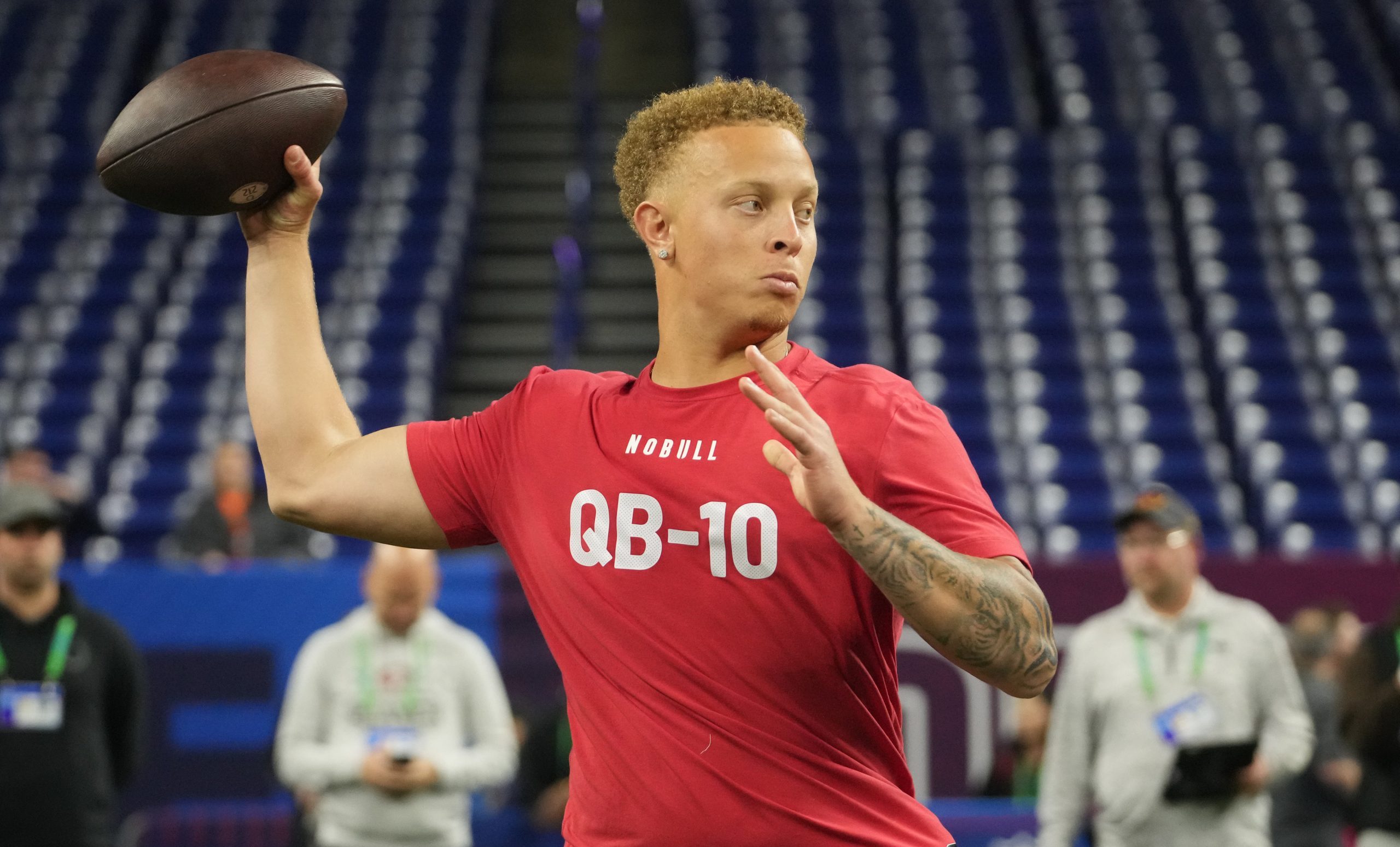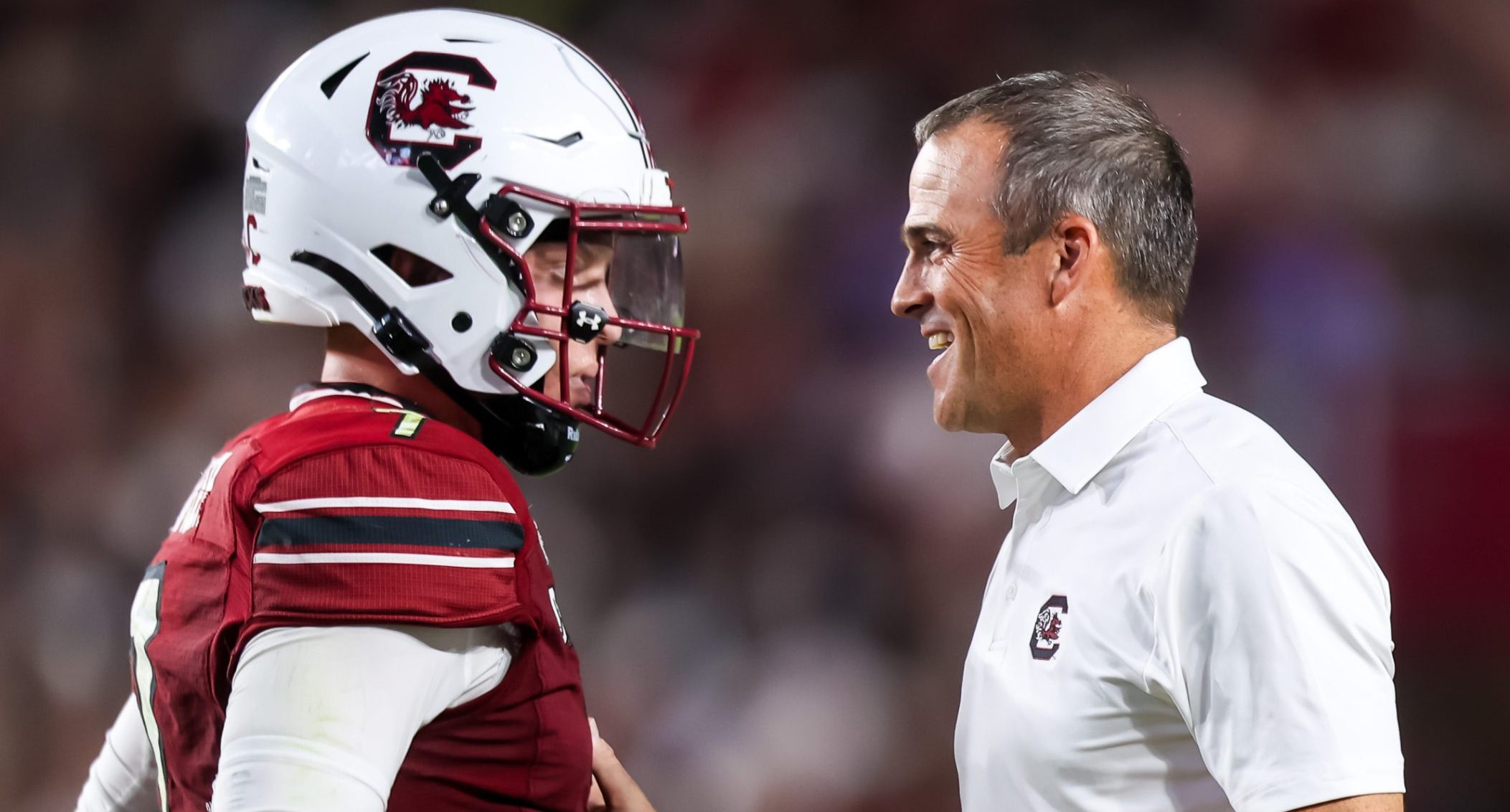There are plenty of interesting rights negotiations ahead in the next few years, but the SEC on CBS package perhaps stands out for what it’s likely to draw relative to its current price. CBS has carried SEC games since 1996 and signed a deal for the current package (which is mostly for an afternoon slot for the top SEC football game each week, but also includes the SEC championship game, doubleheader opportunities, one primetime game per year, and some basketball) in 2008, with that deal running through 2023-24. But there are some notable new developments on what might be ahead once that deal expires.
That deal sees CBS paying $55 million a year, and that’s widely thought to be an incredible value for what they get in ratings (including the top two college football games so far this year, LSU-Alabama and Georgia-Notre Dame). So there’s been lots of talk that the value will go way up (perhaps to $250-300 million per year) in a new deal for this package, whether that’s with CBS or someone else. But a detailed piece on the package from AL.com’s John Talty adds some new information to the conversation, especially that SEC commissioner Greg Sankey (seen above) doesn’t believe CBS “has any first refusal rights“:
One key factor is how CBS and SEC each interpret the current contract, which was agreed to in 2008. Within the contract is a provision that states, “CBS would have the right of first negotiation/first refusal for at least the same terms for a term commencing in 2024-25 and beyond for football and basketball.” Those terms include selection priority (CBS gets first pick of SEC games), game time and exclusivity, among other factors.
But in a confidential memo obtained by AL.com addressed to the SEC’s presidents and chancellors, Sankey pushed back on the legality of that specific provision.
“We believe that we have a good faith obligation to offer to enter into an exclusive negotiation period with CBS,” Sankey wrote, “but do not believe that CBS has any first refusal rights for reasons that can best be addressed by our legal counsel.”
Of course, an internal SEC memo certainly isn’t the final answer on this front. CBS might believe differently and might challenge a SEC attempt to not provide them first refusal rights, and it’s unclear how that would turn out, especially considering that this memo doesn’t provide the SEC’s reasons for believing they don’t have to offer those to CBS. But it’s certainly significant to hear the conference’s thinking on that, especially with that not seeming to line up with the 2008 contract language. And the difference here is potentially quite important.
Both sides appear to agree that there will be an exclusive negotiating window for CBS before the SEC goes out to other bidders for this package, and that window appears to already be in action. Talty writes that “Privately, the network has indicated it would like to have a deal done before the end of 2019,” and while CBS hasn’t yet submitted a formal extension proposal, they’ve been in talks with the SEC about what the conference wants. So they’ll certainly have a chance to make an offer before anyone else gets involved. But where the right of first refusal language matters is if the SEC doesn’t take CBS’ initial offer, lets the exclusive negotiation window expire, and then goes out to other networks and streaming companies. (Keep in mind that the SEC’s other rights deal with ESPN also expires at the same time here, so that package could also move, or the conference could redraw the packages.)
Given the prominence of the SEC and the ratings its teams have drawn, there will be plenty of other potential bidders. ESPN and Fox are both expected to have strong interest here, while the likes of NBC and Turner are also possibilities. Talty even mentions streaming service DAZN, and they’re maybe more of a credible threat for a package similar to the current SEC on CBS deal than they are for more wide-ranging league packages. This is about a smaller number of games rather than an entire league’s inventory and wouldn’t lead to the entire league only being available over-the-top, so that maybe makes DAZN more reasonable to consider than they are in some circumstances. And we know they’re hungry for more U.S. rights and have been raising money for big rights bids.
There’s also maybe a slight possibility of bids from other tech firms that have streaming branches but aren’t exclusively focused on streaming sports, including Amazon, Facebook, and Twitter. But it’s notable that those latter two have both backed off the idea of making their own bids for sports packages recently, instead focusing on partnering with media companies. That could maybe happen here, but also doesn’t seem terribly likely. And it’s notable that moving games to streaming-only comes with pushback from viewers who don’t have those services and only want to watch on TV; the Big 12 has seen a decent amount of pushback over moving even less-prominent games to ESPN+, and that likely would be even more significant here, considering that this particular package is about some of the biggest games out there (in terms of rankings and potential audiences).
So given the TV ratings for this package and the value of those (especially in an era where sports is one of the few things still drawing large numbers of live viewers), a network seems most likely. But which network that is is still to be determined. And if CBS doesn’t actually have a right of first refusal, that opens the door for other networks; those networks can then make offers without worrying about if CBS will match.
The latest
- Could NFL see next Saudi sportswashing controversy?
- ESPN and NBA have reportedly ‘essentially come to terms’ on deal that would keep Finals on ABC
- G/O Media sells The Onion to ‘Global Tetrahedron,’ ex-NBC reporter Ben Collins to serve as CEO
- Eli Gold on Alabama exit: ‘You can’t argue with city hall.’
Thus, that further adds to the importance of this exclusive negotiating window for CBS. If they do have formal matching language, that doesn’t matter as much, as they could wait and see what everyone else throws in with the assurance that they’ll still be able to get it. Without that language (or at least without the SEC agreeing they have that language), they’re further incentivized to throw in a big bid to try and land this during the exclusive window.
Of course, it should be noted that CBS would still have to pay big, and that they’ll have to at least make an offer similar to what other networks are expected to throw in. While those other networks can’t officially negotiate yet, this isn’t a case like the 2026 FIFA World Cup, where the rights were extended at what many saw as a below-market rate as an apparent make-good for moving the 2022 World Cup to the winter. The SEC doesn’t have to stick with CBS if they don’t feel like it, and they’re not likely to if they think they can do much better somewhere else.
All in all, it’s far from clear just how these negotiations will go down and who will wind up with this package. It could well be that CBS retains it, either relatively soon thanks to this exclusive negotiating window or much later after other offers come in (with or without formal matching language). It could certainly be that this moves over to ESPN, either giving them rights to the whole SEC (if they keep their existing package as well) or in some sort of redefined split with another network like CBS or Fox.
Fox, NBC or Turner could also potentially grab this package, and there’s always a chance of DAZN or some other streaming company managing to pull something off. But while we don’t yet know the landing spot for this package, we certainly know there will be lots of interest in it. And that should make these negotiations very interesting indeed to follow.
[AL.com]







